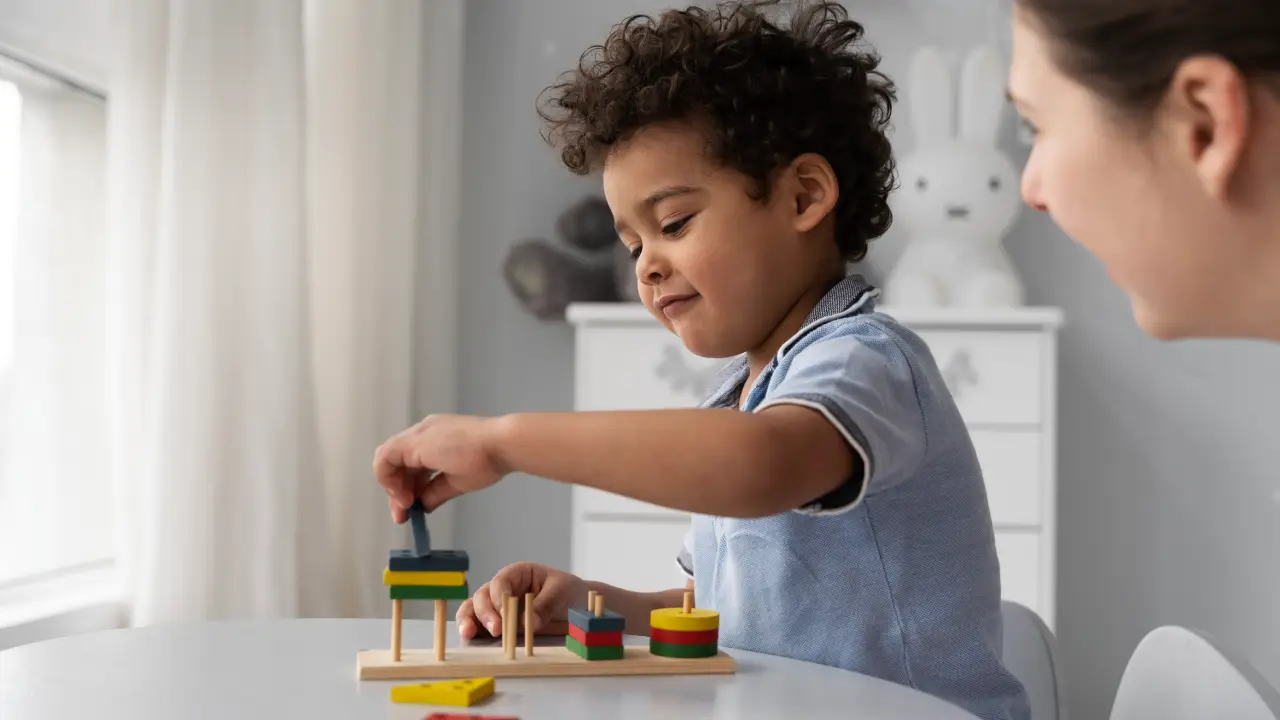Early life is a crucial stage of human development that prepares the ground for later academic, emotional, and social success. Among the several factors determining a child’s development, social events at nursery schools are rather important. These activities are organized experiences that teach young children how to communicate, cooperate, and negotiate the complexity of human relationships, not only play. For parents, caregivers, and teachers all around, knowing how these social activities affect early development is absolutely vital.
The Role of Social Interaction in Early Childhood
Young children are naturally social creatures. They answer to speech, facial expressions, and human touch from birth. These interactions get even more complicated as they develop. Nursery environments provide a special setting where children can experience a range of social situations, including those with adults outside the family and peers. This improves their critical interpersonal abilities and widens their social awareness.
Children pick up sharing toys, turn-taking, verbal communication of their wants, and little dispute resolution at a nursery. Later in life, healthy relationships are predicated on these fundamental social skills. Much like how students might consider options such as whether to pay someone to do my exam when under academic pressure, young children also face their own early decisions and social negotiations. Children acquire empathy, patience, collaboration, and how to negotiate emotions including frustration and excitement via daily interactions.
Language Development Through Social Activities
The improvement of language skills is among the most obvious effects of social events in nursery school. Children get regular chances to increase their vocabulary, practice sentence construction, and pick the subtleties of verbal communication by talking to teachers and peers. Children who might not get enough verbal interaction at home really need this.
From infancy to storytime, singing songs, group discussions, and role-playing activities, everything is meant to improve language development. Children’s social environment allows them to confirm their command of language by usually imitating what they hear and utilizing new words in original ways. Moreover, comments from teachers and peers assist youngsters improve their communication and understanding skills.
Emotional Intelligence and Self-Regulation
Open brain is the ability for understanding with others as well as for understanding, stating, and controlling one’s emotions. Social activities in a nursery location assist children to become aware of their feelings and those of others, therefore helping emotional development. Games involving turns, small group cooperation, or handling winning and losing help kids control their emotions in a socially appropriate manner.
Children also begin to acquire self-regulation—that is, the capacity to regulate urges, postpone gratification, and behave in line with social conventions. A child might pick up, for instance, the ability to follow classroom policies, wait patiently in line, or console a classmate who is crying. Children’s ability to operate in a group and manage obstacles with emotional control and resilience depends critically on these encounters.
Building Confidence and Independence
Children who engage in social events develop their confidence. Every effective encounter or finished group project validates their sense of competence and autonomy. Many times, nurseries design orderly yet adaptable surroundings that inspire kids to make decisions, start play, and take on little tasks like cleaning after an event or lending a buddy help.
By means of these chances, kids become more responsible for their behaviors and begin to rely on their capacity for judgment. As students enter more official learning environments and face more demanding social and intellectual difficulties, this increasing independence is vital.
Enhancing Cognitive and Problem-Solving Skills
Social play helps with cognitive development as well as with emotional and language development. Children’s fine motor skills and creativity are growing as well as their critical thinking and group problem-solving abilities when they pretend to play, construct with blocks, or solve puzzles together.
Critical thinking and decision-making abound in negotiating roles during play, choosing the rules of a game, or determining how to divide resources. These encounters boost flexible thinking and help to accelerate brain development. In this way, social events function as unofficial learning opportunities that advance intellectual development by means of practical, interactive encounters.
Cultivating a Sense of Belonging and Community
The sense of belonging that social events in nursery help to foster is among their most important effects. For many youngsters, nursery is their first encounter with a community outside of their own family. Children discover from group projects that they are part of something greater than themselves. They start to grasp ideas including mutual respect, social conscience, and teamwork.
Acceptance and value inside a group helps a child’s self-esteem grow and lessens anxiety or loneliness. Children that experience this sense of security are more likely to be adventurous, honest communicators, and explore novel ideas free from concern for criticism.
Supporting Inclusive Development
Combining children from several ethnic, linguistic, and socioeconomic origins, nurseries sometimes act as melting pots of diversity. Children who participate in social events in these environments learn early on to value differences and grow to have inclusive views. Early variety exposure promotes open-mindedness and lessens the possibility of prejudice or discrimination in later life.
Play and group-based learning also guarantee inclusion of children with diverse abilities and learning styles. By customizing social events to accommodate every child’s needs, educators guarantee that every participant gains something. Such inclusive approaches not only improve personal growth but also impart to every youngster empathy and equality’s principles.
Role of Educators in Facilitating Social Activities
The degree of social activity’s ability to promote development depends much on the part teachers play. In nursery settings, teachers and caregivers are organizers who lead connections, model proper behavior, and create an environment where every child feels comfortable and motivated to contribute; they are not only supervisors.
Teachers create age-correct activities meant to move inquiry, challenge emotional skills, and help group projects. When problems develop, they gently step in to help kids express their emotions and come to workable answers. Observing and knowing every child’s social and emotional needs helps teachers to offer individualized support that speeds up growth.
Conclusion
Social events at nursery schools are essential for early childhood development and go much beyond simple entertainment for little children. These pursuits help with language, emotional intelligence, self-regulation, and cognitive development. Strong basis for lifetime learning and social success, they also inspire confidence, independence, and a feeling of belonging.
Early education should deliberately include social contact since we understand its importance and provide kids the tools they need to negotiate both personal and intellectual obstacles. Therefore, funding top-notch nursery projects with a heavy focus on social events is not only good but also necessary for the whole growth of every child.





